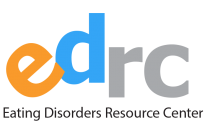By Kathryn Cortese, LCSW, ACSW, CEDS
Ever wonder what trust really means while working on your eating disorder recovery? What does trusting another person feel like? And does it matter that much? Trust, trust, trust – a concept thrown about when getting a foothold on recovery – so what’s the magic?
Typically, upon entering treatment for an eating disorder, a professional asks a lot of questions about you. You’ve just met this provider and these questions include some basics, as well as details about your eating disorder history, personal life, and current status. A study done in 2018 reported that up to 81% of patients lie to their doctors out of fear of being judged.1 The significance of this dynamic must be taken in with understanding and compassion by all treating professionals. Using therapy as a science and an art guides the professional in helping the client grow in trust such that this fear of judgment, rampant within the eating disorder itself, can dissipate and be replaced with the goal of honesty for the self of the patient and the therapeutic relationship.
Fear of judgment has many cousins that must be understood during recovery in order for trust to grow. These cousins include intense shame and a sense of inadequacy. Nikki Rollo, PhD reminds us:
Shame is a conviction at the very core that one is defective and worthless. It is a deeply rooted emotion that one is bad, is wrong and can’t do anything right. Shame is accompanied by self-loathing and feelings of deep inadequacy.2
Appreciating the depth of this experience is a tool a skilled therapist can bring into the therapy room to work in partnership with the patient to quiet this state and bring the authentic self of the individual to the fore.
Eating disorders love to engage people around their feelings of inadequacy. This sense of being not good enough can be about one’s size, shape, level of fitness, character, decency, and/or number on the scale, magnified by comparing oneself to others on a persistent basis and often augmented with a voice of perfectionism. When the therapist consistently views the patient as capable, competent, worthy, and with value, this perception takes shape in the room and leaves an impression on the patient.
With the brute force of fear of judgment, shame, and a sense of inadequacy, one can readily understand that trust in the therapist is rather far-fetched. Let’s flip this scenario and what shifts when a person knows they will be accepted as they are, is welcomed for their personhood, and held with a supportive level of approval. If possible, I’d like you to imagine the feeling state that is present in the connection between the professional and the individual. Hopefully, you sense a level of calm, easier breathing, and the type of trust that can blossom for the sake of the patient and their recovery.
What’s revealing about this feeling state of trust is one’s ability to know when it is present, know when it is waning, and know when it is absent. With time, this skill is active in the patient and allows for the “noticing” and “speaking to” alterations in trust in the therapeutic relationship.
Having a foundation of trust in the therapeutic connection is a significant step not only in recovery but in establishing a fulfilling experience of trust within oneself and the joys of what follows.
About the author:
Kathryn Cortese, LCSW, ACSW, CEDS, began working as a psychotherapist with individuals with eating disorders in 1989. She is committed to the beliefs that recovery is real, support is essential, and hope matters. In 2013, along with her son, Michael, Kathy purchased the Gürze Catalogue. They offer the annual Gürze/Salucore Eating Disorders Resource Catalogue in print and digitally-interactive format, a monthly ENewsletter featuring articles specifically written for this as well as a Book Interview, the edcatalogue.com website, the ED Pulse, and a weekly podcast series, ED Matters.






